Transcription of Swimming Pool Electrical Safety - Florida Building
1 1 Swimming Pool Electrical Safety1 Appropriate Licensing Please verify that your contractor has the appropriate license(s) and actual knowledge and experience for the necessary work. An Electrical contractor means a person who conducts business in the Electrical trade field and who has the experience and knowledge install, repair, alter, add to, or design Electrical wiring, fixtures, appliances, apparatus, raceways, and conduit, including the Electrical installations and systems within plants and substations and all alarm systems and specialty categories. A commercial pool/spa contractor means a contractor whose scope of work involves, but is not limited to the construction, repair, and servicing of any Swimming pool, or hot tub or spa, including the repair or replacement of existing equipment or the installation of new equipment.
2 A Swimming pool specialty contractor licensee may be issued in the areas of layout, structural, excavation, trim, decking, piping, and finishes. Swimming pool specialty contractors may not contract directly with the public, and must work under contract, under the supervision, and within the scope of work of a contractor licensed pursuant to Sections (3)(j) (l), Florida Statutes. Permitting and Inspections Check with the local city or county (if in an unincorporated area) Building or planning department for required permitting and inspections. Note: Final Electrical and barrier code inspection shall be completed prior to filling the pool with water ( / ). Exemption: Vinyl liner and fiberglass pools are required to be filled with water upon installation.
3 A residential pool/spa contractor means a contractor whose scope of work involves, but is not limited to the same as the commercial pool/spa contractor except the construction of equipment rooms. A Swimming pool/spa servicing contractor means a contractor whose scope of work involves the servicing and repair of any Swimming pool or hot tub or spa. The scope of such work may include any necessary piping and repairs, replacement and repair of existing equipment, or installation of new additional equipment as necessary. 1 Disclaimer This piece is intended to give the reader only general factual information current at the time of publication. This piece is not a substitute for professional advice and should not be used for guidance or decisions related to a specific design or construction project.
4 At a minimum, you should refer to any updated laws, rules, codes, and regulations for requirements applicable to your specific project. This piece is not intended to reflect the opinion of any of the entities, agencies, or organizations identified in the materials and, if any opinions appear, are those of the individual author and should not be relied upon in any event. 2 The following codes and standards apply to Swimming pools designed, built, and maintained and is not all inclusive. A short overview of the relevant Electrical Safety requirements as found in the 5th Edition of Florida Building Code (FBC) is as follows: FBC Building Chapter 4 Section 454 Swimming Pools and Bathing Places (Public and Private) A public Swimming pool or public pool means a watertight structure of concrete, masonry, or other approved materials which is located either indoors or outdoors, used for bathing or Swimming by humans, and filled with a filtered and disinfected water supply, together with buildings, appurtenances, and equipment used in connection therewith.
5 A private Swimming pool means any structure, located in a residential area, that is intended for Swimming or recreational bathing and contains water over 24 inches deep, including, but not limited to, in-ground, aboveground, and on-ground Swimming pools; hot tubs; and non-portable spas. Electrical equipment and wiring and installation, including the grounding of pool components shall conform to Chapter 27 Electrical (NFPA 70). Underwater lighting shall utilize transformers and low-voltage circuits with each underwater light being grounded. The maximum voltage for each light shall be 15 volts and the maximum incandescent lamp size shall be 300 watts. The location of the underwater lights* shall be such that the underwater illumination is as uniform as possible and shall not be less than 18 inches (457 mm) below the normal operating water level determined by the center-line of the skimmer or top lip of the gutter.
6 All underwater lights which depend upon submersion for safe operation shall have protection from overheating when not submerged. Alternative lighting systems which use 15 volts or less, or use no electricity in the pool or on the pool deck, such as LED (light emitting diode) fiber-optic systems, may be utilized if the manufactures specifications provide for the equivalency in watt output. Pumps shall be installed in accordance with the manufacturer s recommendations. * Measured from the top of the fixture lens. Note: At this time only public pools are required to use low voltage lighting. 3 FBC - Residential Chapter 42 Swimming Pools [ Electrical Provisions] and Chapter 45 Private Swimming Pools Important definitions include, but are not limited to: Low Voltage Contact Limit.
7 A voltage not exceeding the following values: 1. 15 volts (RMS) for sinusoidal AC 2. volts peak for nonsinusoidal AC 3. 30 volts for continuous DC 4. volts peak for DC that is interrupted at a rate of 10 to 200 Hz No-Niche Luminaire. A luminaire intended for installation above or below the water without a niche. Wet-Niche Luminaire. A luminaire intended for installation in a forming shell mounted in a pool or fountain structure where the luminaire will be completely surrounded by water. Luminaires and related equipment. Other than listed low-voltage luminaires not requiring grounding , all through-wall lighting assemblies, wet-niche, dry-niche, or no-niche luminaires shall be connected to an insulated copper equipment grounding conductor sized in accordance with Table but not smaller than 12 AWG.
8 The junction box, transformer enclosure, or other enclosure in the supply circuit to a wet-niche or no-niche luminaire and the field-wiring chamber of a dry-niche luminaire shall be grounded to the equipment grounding terminal of the panel board. The equipment grounding terminal shall be directly connected to the panel board enclosure. The equipment grounding conductor shall be installed without joint or splice. In specific wiring configurations, the equipment grounding conductor may be permitted to be terminated on grounding terminals, ground-fault circuit- interrupter, clock-operated switch enclosure, or an outlet box used to enclose a snap switch. Through-Wall Lighting Assembly. A lighting assembly intended for installation above grade, on or through the wall of a pool, consisting of two interconnected groups of components separated by the pool wall.
9 Dry-Niche Luminaire. A luminaire intended for installation in the floor or wall of a pool, spa or fountain in a niche that is sealed against the entry of water. 4 No-niche luminaires. No-niche luminaires shall be listed for the purpose and shall be installed in accordance with the requirements of Section Where connection to a forming shell is specified, the connection shall be to the mounting bracket. Luminaire location. Luminaires mounted in walls shall be installed with the top of the fixture lens not less than 18 inches (457 mm) below the normal water level of the pool, except where the luminaire is listed and identified for use at a depth of not less than 4 inches (102 mm) below the normal water level of the pool.
10 Underwater luminaires. The design of an underwater luminaire supplied from a branch circuit either directly or by way of a transformer or power supply meeting the requirements of Section , shall be such that, where the fixture is properly installed without a ground-fault circuit interrupter, there is no shock hazard with any likely combination of fault conditions during normal use (not relamping). In addition, a ground-fault circuit-interrupter shall be installed in the branch circuit supplying luminaires operating at more than the low-voltage contact limit. The installation of the ground-fault circuit-interrupter shall be such that there is no shock hazard with any likely fault-condition combination that involves a person in a conductive path from any ungrounded part of the branch circuit or the luminaire to ground.
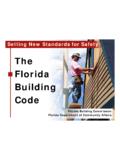




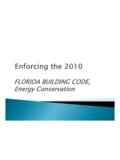
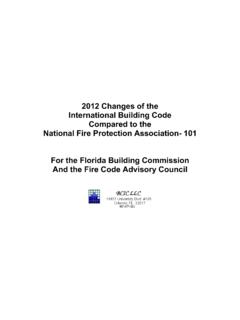



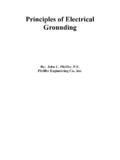


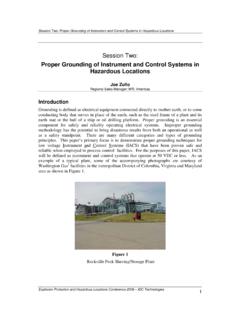
![Wind Farm Electrical Systems.pptx [Read-Only]](/cache/preview/8/3/4/a/7/7/3/b/thumb-834a773be91d444a92c541b6bc1b2269.jpg)


